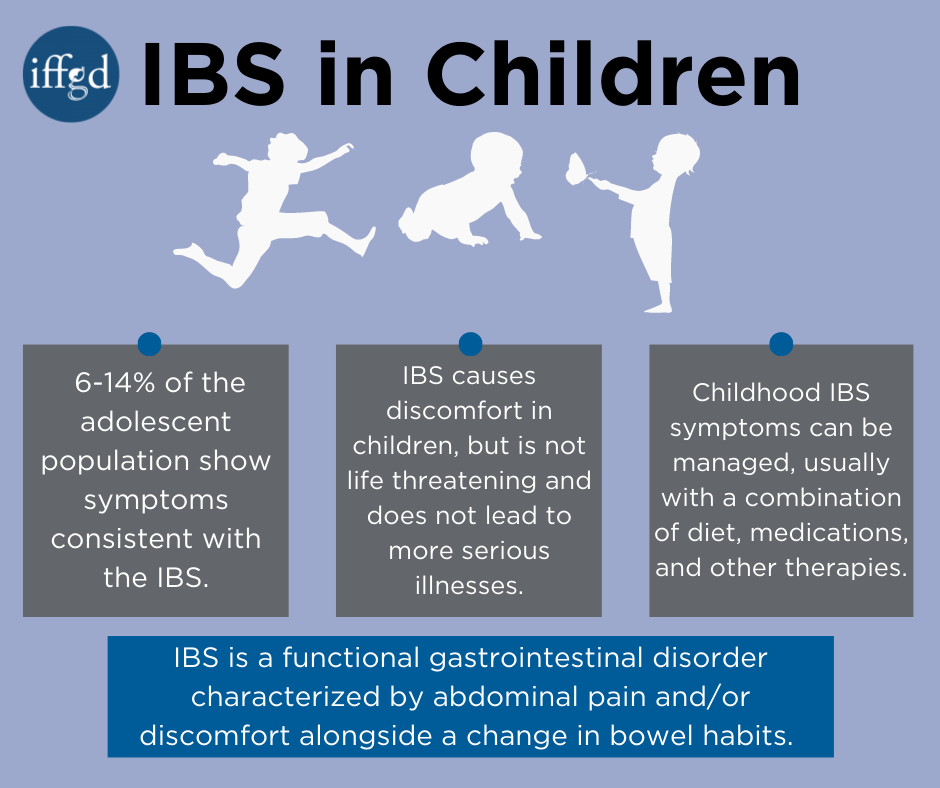Irritable bowel syndrome (IBS) is a disorder characterized by abdominal pain or discomfort, and altered bowel habit (chronic or recurrent diarrhea, constipation, or both – either mixed or in alternation).
Facts about IBS
- Worldwide it’s estimated that 5-10% of the population has IBS.
- Most persons with IBS are under the age of 50. But many older adults suffer as well.
- The exact cause of IBS is not known. Symptoms may result from a disturbance in the way the gut, brain, and nervous system interact. This can cause changes in normal bowel movement and sensation.
- Stress does not cause IBS. However, because of the connection between the brain and the gut, stress can worsen or trigger symptoms.
- The impact of IBS can range from mild inconvenience to severe debilitation. It can control many aspects of a person’s emotional, social and professional life. Persons with moderate to severe IBS must struggle with symptoms that often impair their physical, emotional, economic, educational and social well-being.
- IBS is unpredictable. Symptoms vary and are sometimes contradictory. Diarrhea can alternate with constipation. Long-term symptoms can disrupt personal and professional activities, and limit individual potential.
- Treatments are available for IBS to help manage symptoms. Not all treatments work for all people. Through research, better treatments may be found. Although IBS is common in the general population, few seek medical care for their symptoms.
- Nearly 2,000 patients with IBS reported in a survey by IFFGD that diagnosis of their IBS was typically made 6.6 years after the symptoms began.
- Four out of five people reported pain as the most frequent factor contributing to the severity of their IBS.
- Approximately 20 to 40% of all visits to gastroenterologists are due to IBS symptoms. For those with IBS an additional burden comes from living in a society where the word “bowel” may scarcely be spoken. Individuals must cope with multiple symptoms that affect every aspect of their lives. Those around them may be unaware of the impact, or even the existence, of the disorder.
- Not all individuals with IBS symptoms seek medical care for their symptoms. Nevertheless, there are between 2.4 and 3.5 million annual physician visits for IBS in the United States alone.
- Not all individuals with IBS symptoms seek medical care for their symptoms. Nevertheless, there are between 2.4 and 3.5 million annual physician visits for IBS in the United States alone.
- IBS can only be diagnosed by a medical professional.
IBS Population Statistics
IBS affects people of all ages, even children.
IBS affects between 25 and 45 million people in the United States. About 2 in 3 IBS sufferers are female. About 1 in 3 IBS sufferers are male.
Based on a survey taken by IFFGD, a significant proportion – 35% to 40% – of individuals who report IBS in the community are male. Approximately 60% to 65% of individuals who report IBS in the community are female.
IBS is a major women’s health issue. Data reveals an increased risk of unnecessary surgery for extra-abdominal and abdominal surgery in IBS patients. For example, hysterectomy or ovarian surgery has been reported in female patients with IBS as high as 47% to 55% and has been performed more often in the IBS patient than in comparison groups.
The Severity of IBS Reported by the Community
| Severity Index | % of respondents |
| Mild IBS | 31.4% |
| Moderate IBS | 48.3% |
| Severe IBS | 20.3% |
For Reporters and Writers
Find more in IFFGD’s Reporter’s Guide to Irritable Bowel Syndrome.
Data from the 2007 IBS and Unmet Needs Survey Report
IBS in the Real World Publication
IBS in women












